Depression affects millions of people every single day. If you're reading this, you or someone close to you may feel sad, hopeless, or stuck. That's completely normal, and you're definitely not alone in this.
Many people worry that getting help for depression means being stuck in a hospital or giving up their normal life. Good news! Outpatient therapy for depression helps you get support while staying at home. You can still keep up with your daily routine.
What does outpatient therapy for depression mean?
What outpatient therapy for depression means is pretty simple. It's like visiting a doctor for a routine checkup. But here, you focus on your mental health instead of your physical health. You attend appointments, chat with experts, pick up new skills, and then return to your everyday life.
The big difference between outpatient and inpatient care is where you sleep at night. With inpatient care, you stay at a treatment center or hospital. With outpatient care for depression, you go home every day. You get to sleep in your own bed, see your family, keep your job, and maintain the parts of your life that matter to you.
Why outpatient treatment is becoming popular makes a lot of sense when you think about it. People want help, but they don't want their whole world turned upside down. Most research shows that about 85% of people in mental health treatment prefer outpatient care. This choice often fits better with their daily lives.
What Is Outpatient Therapy for Depression?
Let's break this down in the simplest way possible. Outpatient therapy for depression means seeing a therapist or counselor regularly. You work on feeling better, and you don’t need to stay overnight anywhere. Think of it like piano lessons. You arrive, learn something new, practice it, and return to build on that.
How does outpatient care work in mental health?
How outpatient care works in mental health follows a pretty straightforward process. You meet with trained professionals who understand depression inside and out. They hear what you’re experiencing. They help you understand your feelings. Also, they teach you useful tools for tough days.
The key goals are symptom relief, coping skills, and long-term recovery. This means helping you feel better now. We’ll give you tools that work when times get tough. Additionally, we’ll ensure you stay healthy in the long run. It's not just about putting a band-aid on the problem - it's about actually fixing what's broken.
Outpatient treatment for depression helps 70 to 80% of people improve a lot. That's pretty amazing when you think about it. Following a treatment plan helps people feel better. It also makes managing life's challenges easier.
Types of Outpatient Therapy Programs
Not everyone needs the same amount of help, and that's where different types of programs come in handy. Think of it like exercise - some people need a gentle walk around the block, while others need a full gym workout.
Standard Outpatient Therapy
Standard Outpatient Therapy is the most common type. You typically meet with a therapist once a week for about an hour. You might have one-on-one sessions with your therapist sometimes. Other times, you could join a group with others facing similar challenges. This is helpful for those with mild to moderate depression and a stable life.
Intensive Outpatient Program (IOP)
Intensive Outpatient Program (IOP) is for people who need more support but still want to live at home. Instead of one session per week, you might go to therapy three or four times each week for several hours at a time. You'll do both individual counseling and group therapy. This outpatient treatment for depression is great for those who need help but don't need round-the-clock care.
Partial Hospitalization Program (PHP)
The Partial Hospitalization Program (PHP) is the most intensive choice. You can still go home at night. You spend a lot of time at the treatment center, often six to eight hours. You’ll have therapy, learn coping skills, and work with doctors for medication if needed. It's like having a full-time job focused on getting better.
Online or Telehealth Outpatient Therapy
Online or telehealth outpatient therapy has become very popular. This trend grew as more people got used to video calls. You can have therapy sessions from your computer or phone. This is great if you live far from a treatment center, have trouble with transportation, or prefer staying at home. The quality of care is just as good as meeting in person.
What Treatments Are Used in Outpatient Therapy?
Outpatient counseling uses various methods. Everyone's brain works differently, so what helps one person may not help another. The good news is that therapists have lots of tools in their toolbox.
Psychotherapy approaches
Psychotherapy methods are different ways to discuss issues and discover new thinking patterns. Cognitive Behavioral Therapy, or CBT, is the most common. It helps you see when your thoughts bring you down. It also shows you how to view things in a new way. Dialectical Behavior Therapy, or DBT, helps you manage strong emotions. It teaches you to avoid actions you might regret later. Interpersonal Therapy, or IPT, helps with relationship issues that may worsen depression.
Group therapy brings together people who are dealing with similar issues. It’s comforting to know you’re not alone in tough times. Plus, you can learn from how other people handle their challenges.
Medication management and psychiatric evaluations
Your outpatient treatment for depression might involve medication management and psychiatric evaluations. This is if your doctor thinks they will help. Not everyone needs medication. But when it helps, a psychiatrist and therapist together make a strong treatment team. They make sure any medications are working properly and adjust things if needed.
Lifestyle and skills training
Lifestyle and skills training teaches practical stuff you can use every day. This could mean managing stress, relaxing more, or improving communication with loved ones. It might also include developing healthy habits, like getting better sleep and exercising.
Family counseling and support networks
Family counseling and support networks know that depression affects you and those who care about you. Involving family in therapy can help everyone see what's going on. It also shows how to support each other better.
Who Should Consider Outpatient Therapy?
Deciding if outpatient therapy for mental health is right for you depends on a few key factors. It's kind of like deciding if you can fix something yourself or if you need to call a professional.
People with mild to moderate depression often do well with outpatient care. If you usually feel sad, tired, or unmotivated, outpatient therapy might be right for you. You can still manage basic tasks like eating, showering, and getting out of bed. You're struggling, but you're not in immediate danger.
Those with a supportive home environment tend to succeed more with outpatient treatment. You have family and friends who care. You also have a safe place to live. Plus, some people support you in continuing therapy. You don't need perfect relationships, just some basic support and stability.
Outpatient programs are ideal for those needing treatment while balancing work, school, or family life. You might be a parent caring for kids, stuck in a job you can’t leave, or in school chasing important goals. Outpatient therapy helps you get support while you keep your life on track.
Outpatient care isn’t the best choice for those in crisis or facing severe suicidal thoughts. If you’re feeling like you might hurt yourself, can't meet basic needs, or struggle with daily life due to deep depression, you may need more help. This isn't a failure - it's just being smart about getting the right level of care.
How Does Outpatient Therapy Work Day-to-Day?
.webp)
Knowing what happens when you start outpatient therapy can ease your fears. It's actually pretty straightforward once you know what to expect.
An initial mental health assessment and diagnosis is usually your first step. It's a longer chat. A therapist or psychiatrist will ask many questions. They'll want to know how you feel, what's happening in your life, and what help you think you need. They're not judging you - they're just trying to understand your situation so they can help you better.
Personalized treatment planning happens after your assessment. Think of this like creating a roadmap for feeling better. Your therapist will help you set goals, decide how often to meet, and choose the best types of therapy for you. This plan isn't set in stone - it can change as you make progress or if something isn't working.
Session frequency, duration, and expected timeline vary a lot from person to person. Most standard outpatient therapy sessions last about 45 minutes to an hour. You should start by meeting once a week, then spread sessions out more as you feel better. Some people see improvement in just a few months. Others need longer-term support to benefit. There's no rush, and there's no shame in taking the time you need.
Check in regularly with therapists to track progress and make adjustments. Your therapist may ask you to complete short mood questionnaires. You might also discuss what’s been working and what hasn’t. If something isn't helping, you can try different approaches. Good therapists want you to succeed, so they'll keep adjusting until you find what works.
Benefits of Outpatient Therapy for Depression
Many people choose outpatient depression treatment for good reasons. These benefits make a real difference in people's lives.
Flexibility to balance daily responsibilities
Flexibility to balance daily responsibilities might be the biggest advantage. You can book therapy appointments around your work, your kids' school events, or other important plans. This means you don't have to choose between getting help and maintaining the life you've built.
Lower cost compared to inpatient care
Lower cost compared to inpatient care makes treatment accessible to more people. Staying in a residential facility costs a lot more than visiting a therapist a few times per week. Many insurance plans cover outpatient mental health services. If you pay out of pocket, it’s still more affordable than inpatient care.
Real-world application of coping strategies
Real-world application of coping strategies is incredibly valuable. When you learn a new technique in therapy, you can try it out in your actual life right away. To manage stress better, try practicing with real work stress or family situations. This immediate practice helps new skills stick better.
Access to group support
Group support and peer connection help lessen the loneliness that often accompanies depression. Meeting other people who understand what you're going through can be incredibly healing. You realize you're not weird or broken - you're just human dealing with a common problem.
Confidential, safe, and professional care
Confidential, safe, and professional care gives you expert help. You won’t have to worry about privacy. What you discuss in therapy stays between you and your therapist. This safe space allows you to share your feelings and experiences honestly. You won't have to worry about being judged.
Challenges and Limitations to Consider
Being honest about potential challenges helps you prepare for success. Outpatient therapy isn't perfect, and understanding the limitations enables you to make better decisions.
Staying motivated and attending regularly can be tough. Depression can make everything feel harder. Some days you won't want to go to therapy, especially when you're feeling really down. Having plans for tough days can really help. You might ask a friend to remind you, or set up automatic appointment alerts.
A key limitation to note is that it may not provide enough support for severe depression. If your depression is severe and daily tasks are hard, outpatient care might not be enough. Also, if you have thoughts of self-harm, it’s important to seek more intensive help. In these cases, starting with intensive treatment usually works better. Then, you can transition to outpatient care.
Insurance or cost issues for some patients can create barriers to getting help. Most insurance plans cover mental health treatment. However, you may still have copays, deductibles, or limits on the number of sessions. Some therapists have sliding scale fees based on income. Community mental health centers also offer lower-cost options.
Accessibility concerns include:
- Getting to appointments
- Finding childcare
- Managing privacy if you live with an unsupportive family
Online therapy can help with some issues. But not everyone is at ease with video sessions.
Outpatient Therapy vs. Inpatient Treatment
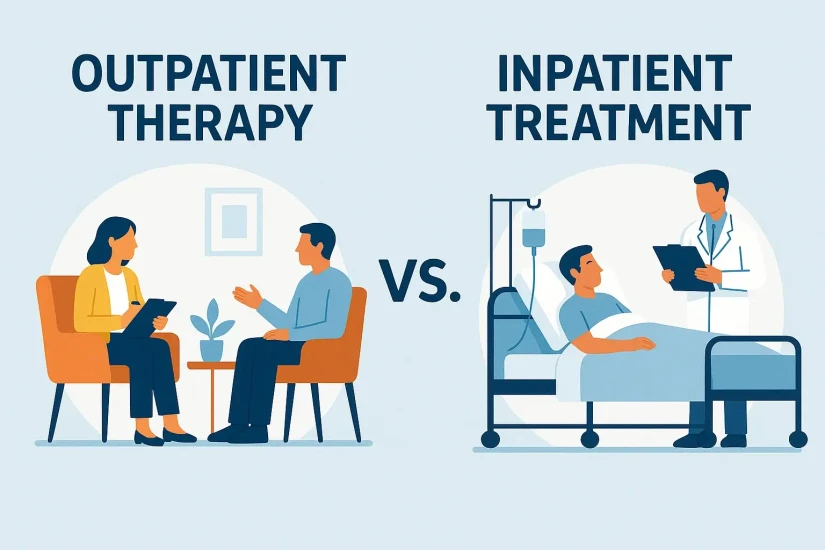
Knowing the differences helps you choose the right level of care for your needs. Both have their place in treating depression.
Key differences in structure, intensity, and supervision
Key differences in structure, intensity, and supervision are significant. Inpatient treatment means staying at a facility 24/7 with constant professional supervision. You eat, sleep, and spend all your time focused on treatment. Outpatient therapy gives you expert support. You can stay independent and keep your daily routine.
Choosing between outpatient and inpatient care depends on safety and a person's progress. If you can care for yourself and keep a daily routine, outpatient treatment often works well. It's also suitable if you're not at immediate risk of self-harm. If daily life is tough, you have serious suicidal thoughts, or need medical help, think about inpatient care first.
The role of step-down care is really important to understand. Many people begin with inpatient treatment during a crisis. Then, they move to intensive outpatient programs. Finally, they switch to standard outpatient therapy as they improve. This step-down approach gives you the right level of support at each stage of recovery.
How to Choose the Right Outpatient Program
Finding the right fit makes a huge difference in your success. Take time to research your options. Don’t just pick the first program you see.
Ask questions about therapies, session frequency, and staff qualifications. This helps you make informed choices. Ask about the types of treatment they use. Find out how often you’ll meet. Check if they offer group sessions. Also, ask about the training their therapists have. Find out if they have experience treating people with similar issues to yours.
Evaluating treatment center reputation and success rates gives you confidence in your choice. Look for centers that are licensed and accredited. Ask about their approach to treatment and what kinds of outcomes they typically see. Online reviews from patients offer useful insights. But keep in mind, everyone’s experience is unique.
Deciding between in-person and online options depends on your preferences and needs. Some people need in-person interaction to feel connected. Others like the convenience and privacy of online sessions. Consider factors like your comfort with technology, your living situation, and your schedule.
Checking insurance coverage and affordability prevents financial surprises later. Call your insurance company. Learn about your mental health benefits, like copays and deductibles. Check with treatment centers about your insurance and out-of-pocket costs.
What to Expect from Outpatient Therapy
Knowing what's coming helps reduce anxiety about starting treatment. Most people feel nervous about their first therapy appointment, and that's completely normal.
First session evaluation and treatment goals
First session evaluation and treatment goals usually involve lots of talking. Your therapist will want to know your history, current symptoms, what led you to therapy, and your goals. This isn't a test - there are no wrong answers. Be as honest as possible because it helps your therapist understand how to help you best.
Common therapy exercises and homework
Common therapy exercises and homework might surprise you. Therapy isn't just about talking. You might learn breathing exercises. You can challenge negative thoughts, keep a mood journal, or try new activities between sessions. These assignments help you practice new skills in real life.
Support outside of therapy
Support outside of therapy includes resources like:
- Crisis hotlines
- Support groups
- Educational materials
- Community resources
Good outpatient programs connect you with additional help that supports your therapy work. This safety net is especially important during difficult periods.
Transitioning into long-term care
Transitioning into long-term maintenance care happens as you start feeling better. You may see your therapist less often. Focus on keeping your progress rather than making big changes. Also, create plans to tackle future challenges. The goal is to help you manage your mental health on your own. You can also find support if you need it.
Conclusion
Outpatient therapy for depression is a flexible and effective choice. It helps people improve while still managing their daily lives. The research is clear that it works for most people who stick with their treatment plan. Choose standard weekly sessions, intensive outpatient programs, or online therapy. The key is to find what fits your needs and situation.
Getting help early is key. It makes treatment work better. Depression often worsens over time without treatment. However, it responds well when you tackle it early. You don't have to wait until you're in crisis to reach out for support.
Recovery is absolutely possible with the right help and support. Many people have faced depression and then found happiness and fulfillment. At Gendrics, we know starting mental health treatment can be daunting. But you deserve a chance for healing and happiness. Outpatient therapy might be exactly what you need to get there.

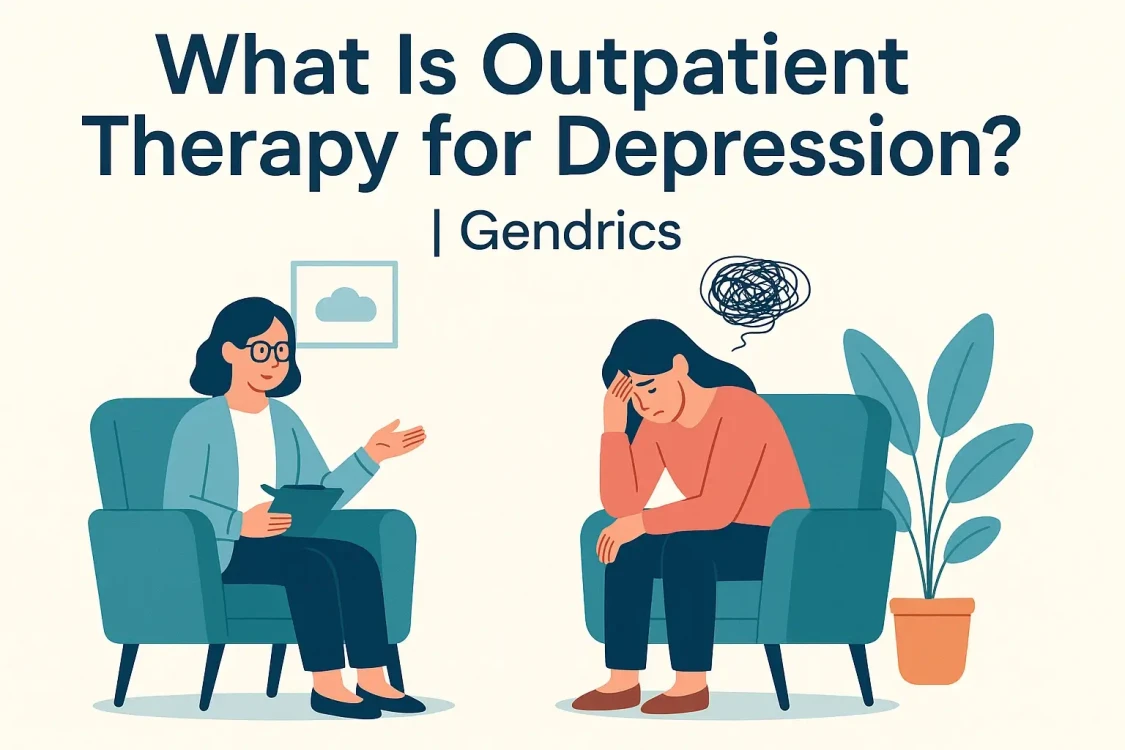
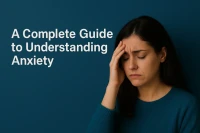
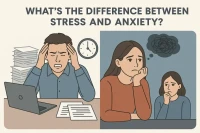
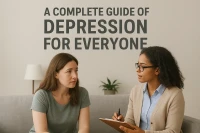
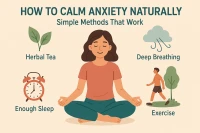
Comments